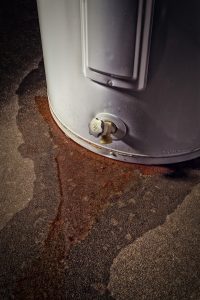 Water heaters look like sturdy devices. They should be: they’re essential parts of any home and must work almost every day of the year. As long as the water heater serving your household was professionally installed and receives routine maintenance each year, it should last more than a decade and possibly two.
Water heaters look like sturdy devices. They should be: they’re essential parts of any home and must work almost every day of the year. As long as the water heater serving your household was professionally installed and receives routine maintenance each year, it should last more than a decade and possibly two.
But the end comes eventually for any water heater, and to head off possible loss of hot water to your house and other headaches, you want to catch the early signs that your water heater is in the final stages. Below are the five most common signs you’re ready for a water heater replacement.


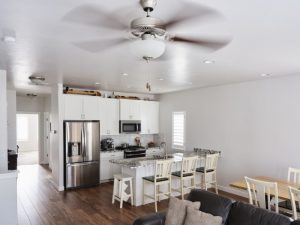
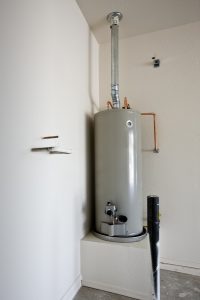 Water heaters are one of those things that many homeowners take for granted, even though it’s something that’s used every single day—could you imagine showering without hot water?
Water heaters are one of those things that many homeowners take for granted, even though it’s something that’s used every single day—could you imagine showering without hot water?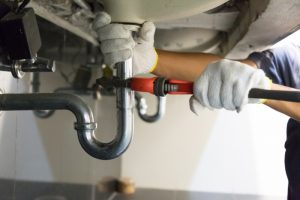 In the best-case scenario, a “plumbing problem” will mean that you have a drippy faucet or a pinhole leak that you may be able to, at least temporarily, fix on your own. Or perhaps you have a superficial clog in a drain that won’t take anything more than a plunger and some good ol’ fashioned “elbow grease” to relieve. In a worst-case scenario though, your plumbing problem will mean that you need repiping.
In the best-case scenario, a “plumbing problem” will mean that you have a drippy faucet or a pinhole leak that you may be able to, at least temporarily, fix on your own. Or perhaps you have a superficial clog in a drain that won’t take anything more than a plunger and some good ol’ fashioned “elbow grease” to relieve. In a worst-case scenario though, your plumbing problem will mean that you need repiping.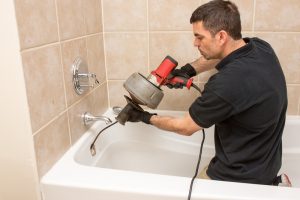 It’s pretty much inevitable that at some point, you will encounter a clogged drain in your home. What’s your first instinct when this happens? If you’re like many homeowners, it’s likely to reach for a bottle of store-bought chemical drain cleaner.
It’s pretty much inevitable that at some point, you will encounter a clogged drain in your home. What’s your first instinct when this happens? If you’re like many homeowners, it’s likely to reach for a bottle of store-bought chemical drain cleaner.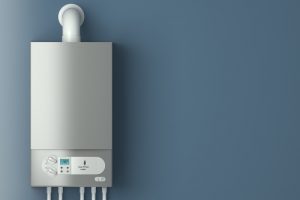 Chances are, you are familiar with the traditional water heater setup—storage tank water heaters are very noticeable, and often even a little noisy. This conventional water heater is found in most homes throughout the country, so many people realize that a tank water heater may need attention from time to time, in the form of system maintenance.
Chances are, you are familiar with the traditional water heater setup—storage tank water heaters are very noticeable, and often even a little noisy. This conventional water heater is found in most homes throughout the country, so many people realize that a tank water heater may need attention from time to time, in the form of system maintenance. With how much time we’ve spent indoors lately, it’s only natural to think about whether your home is as aesthetically pleasing, comfortable, and functional as you would like. You might be considering changing things up with a kitchen remodel, which is a great idea! Of course, it’s important to remember that remodels do take a lot of work, and some of this work will require the help of a professional plumber.
With how much time we’ve spent indoors lately, it’s only natural to think about whether your home is as aesthetically pleasing, comfortable, and functional as you would like. You might be considering changing things up with a kitchen remodel, which is a great idea! Of course, it’s important to remember that remodels do take a lot of work, and some of this work will require the help of a professional plumber.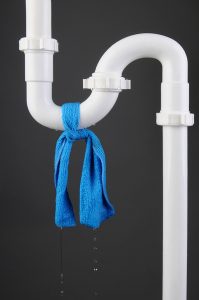 We probably don’t need to tell you that if you have a leaking pipe in your home that’s undetectable to the naked eye, you’ve got a problem on your hands. Other plumbing issues make themselves known pretty quickly—for instance it’s very hard not to recognize a clogged toilet or a leaking faucet. The pipes tucked away in your home—such as in your basement or behind the walls—are less noticeable.
We probably don’t need to tell you that if you have a leaking pipe in your home that’s undetectable to the naked eye, you’ve got a problem on your hands. Other plumbing issues make themselves known pretty quickly—for instance it’s very hard not to recognize a clogged toilet or a leaking faucet. The pipes tucked away in your home—such as in your basement or behind the walls—are less noticeable. Hard water is one of those things that a lot of residents and business owners deal with, even without realizing. The problem is, it slowly degrades the efficiency of a plumbing system until one day limescale buildup either leads to a clog or pipe leaks. This is a bad enough problem in a home, can you imagine it in your business?
Hard water is one of those things that a lot of residents and business owners deal with, even without realizing. The problem is, it slowly degrades the efficiency of a plumbing system until one day limescale buildup either leads to a clog or pipe leaks. This is a bad enough problem in a home, can you imagine it in your business?